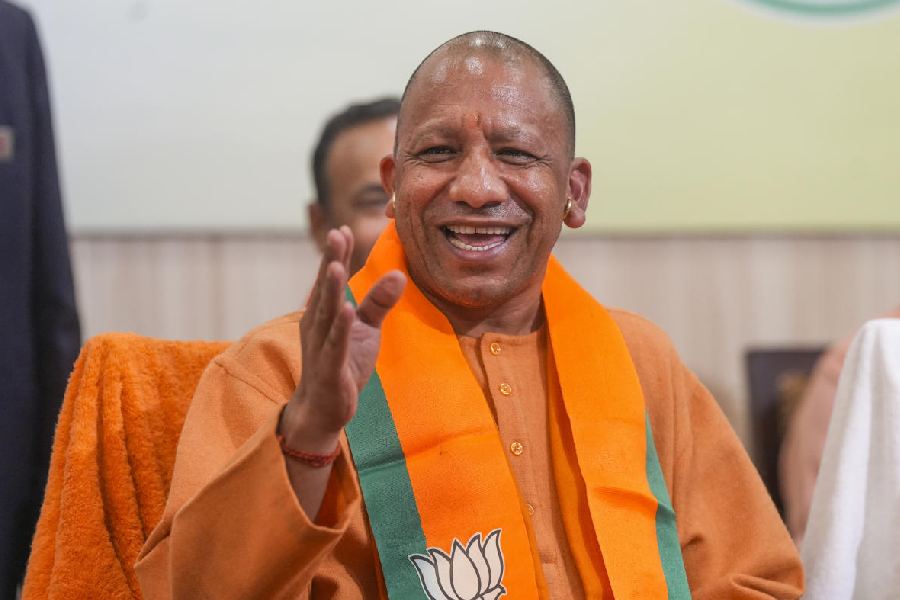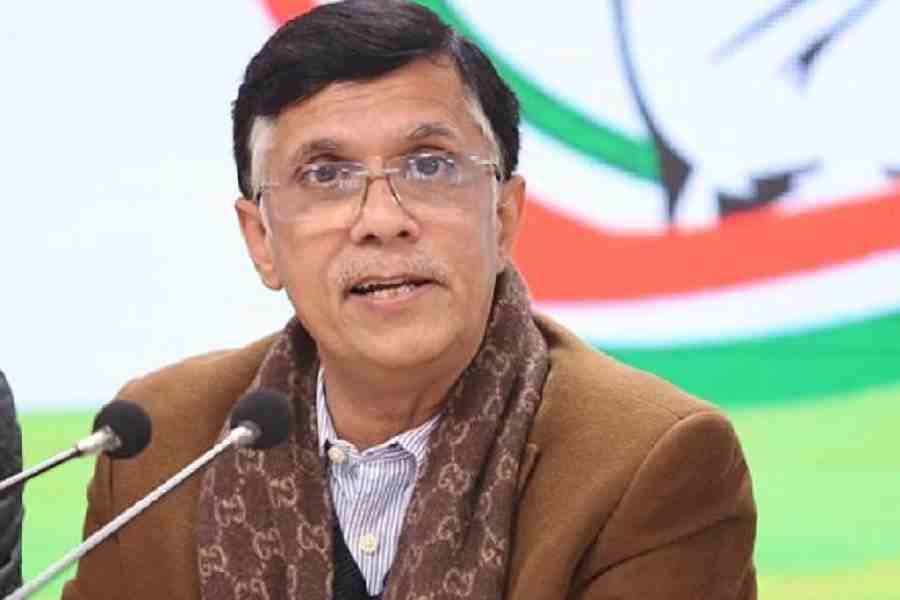India’s homegrown Covid-19 vaccine has shown close to 81 per cent efficacy in protecting people from the infection, the vaccine’s developers announced on Wednesday, releasing the much-awaited interim results of a nationwide clinical trial.
The results mark the first efficacy data on Covaxin, the vaccine developed jointly by the Hyderabad-based Bharat Biotech and the Indian Council of Medical Research.
The vaccine had run into controversy after India’s drug regulators approved it in January without efficacy studies.
The first interim analysis has found 43 Covid-19 cases among the 25,800 participants of Covaxin’s clinical trial at multiple sites across India, 36 cases among those who received placebo and seven cases among those who received the vaccine.
The skewed split in cases implies that those who had received the vaccine had a significantly lower chance of becoming infected than those who had received the placebo and translates into a vaccine efficacy of 80.6 per cent.
“We now have data demonstrating high clinical efficacy against Covid-19 infection,” Krishna Ella, a scientist-turned-entrepreneur and head of Bharat Biotech, said in a statement released to the media. “An independent data safety monitoring board announced the interim results at 3pm today.”
For comparison, India’s drug regulatory authority had, relying on clinical trials outside India, cited an overall vaccine efficacy of 70 per cent for Covishield, the AstraZeneca-Oxford vaccine, produced in the country by the Serum Institute of India.
India is currently using both Covaxin and Covishield in its vaccination drive to immunise about 10 million healthcare workers, 20 million frontline workers and roughly 270 million people from the general population at high risk of severe disease.
The Centre is sending both the vaccines to states and state authorities are responsible for distributing them to government and private hospitals. Eligible people could choose a vaccine they want by opting for hospitals that have received the vaccine of their choice.
Many experts had questioned the regulatory decision to approve Covaxin only on the basis of its capacity to generate an immune response without efficacy data. Some had speculated whether India fast-tracked Covaxin’s approval to show a homegrown vaccine alongside Covishield.
“It is good to see this interim analysis data — these are early but very good results,” said Gagandeep Kang, professor of microbiology and vaccine science specialist at the Christian Medical College, Vellore, who was among those who had criticised the regulatory approval without any clinical efficacy.
Covaxin has been crafted from an inactivated (killed) coronavirus isolated from a patient by the ICMR’s National Institute of Virology, Pune, in March last year and developed into a vaccine by Bharat Biotech in its Hyderabad research facility.
“This is a testament to India’s emergence as a vaccine superpower,” said Balram Bhargava, the ICMR’s director-general. The Indian government has already sent Covaxin doses to Myanmar and Sri Lanka, among other countries, and Bharat Biotech is preparing to supply the vaccine to other countries too.
Scientists tracking Covid-19 vaccine development said Covaxin’s interim results were not surprising, given the strong immune responses it had shown in rhesus monkeys and humans and the efficacy of a similar inactivated Chinese vaccine.
The large number of participants in the clinical trial bolsters confidence in the results, said Shahid Jameel, a senior virologist and director of the Trivedi School of Biosciences at Ashoka University in Sonipat, Haryana. “Further analysis at two other points — after 87 cases and 130 cases — will further refine the efficacy data to higher confidence levels,” Jameel said.
The interim results released did not specify how many among the 43 cases had mild, moderate or severe Covid-19. One of the goals of Covid-19 vaccine trials is to assess the capacity of a vaccine to prevent severe disease.
Covishield data
Covishield evoked a strong immune response 28 days after the first dose, researchers in Delhi have reported in a study that they say represents the first public data from India on the immune responses to the AstraZeneca-Oxford vaccine.
The researchers at the Institute of Genomics and Integrative Biology, New Delhi, collaborating with doctors at Max Hospitals have also found that in people previously infected by Covid-19, the first dose served as a booster, raising their antibody levels against the virus.
The IGIB-Max team examined antibody responses in 135 healthcare workers who have received Covishield since the start of the vaccination campaign on January 16.
They found that the antibody levels had spiked within a week in 44 vaccine recipients who already had antibodies against the virus likely because of previous exposures. In the other recipients, the antibodies emerged only around day 14 and climbed to significant levels by day 28.
“The study highlights the effectiveness of the vaccine in generating antibodies and could be used to formulate an optimum vaccination strategy for the Indian population,” said Shantanu Sengupta, a senior scientist at the IGIB.
The Serum Institute of India had last year conducted immunogenicity studies with Covishield in Indian recipients as part of mandatory clinical trials and submitted the trial data to drug regulators. “We have not seen any published immunogenicity data on Covishield in India,” Sengupta said.











